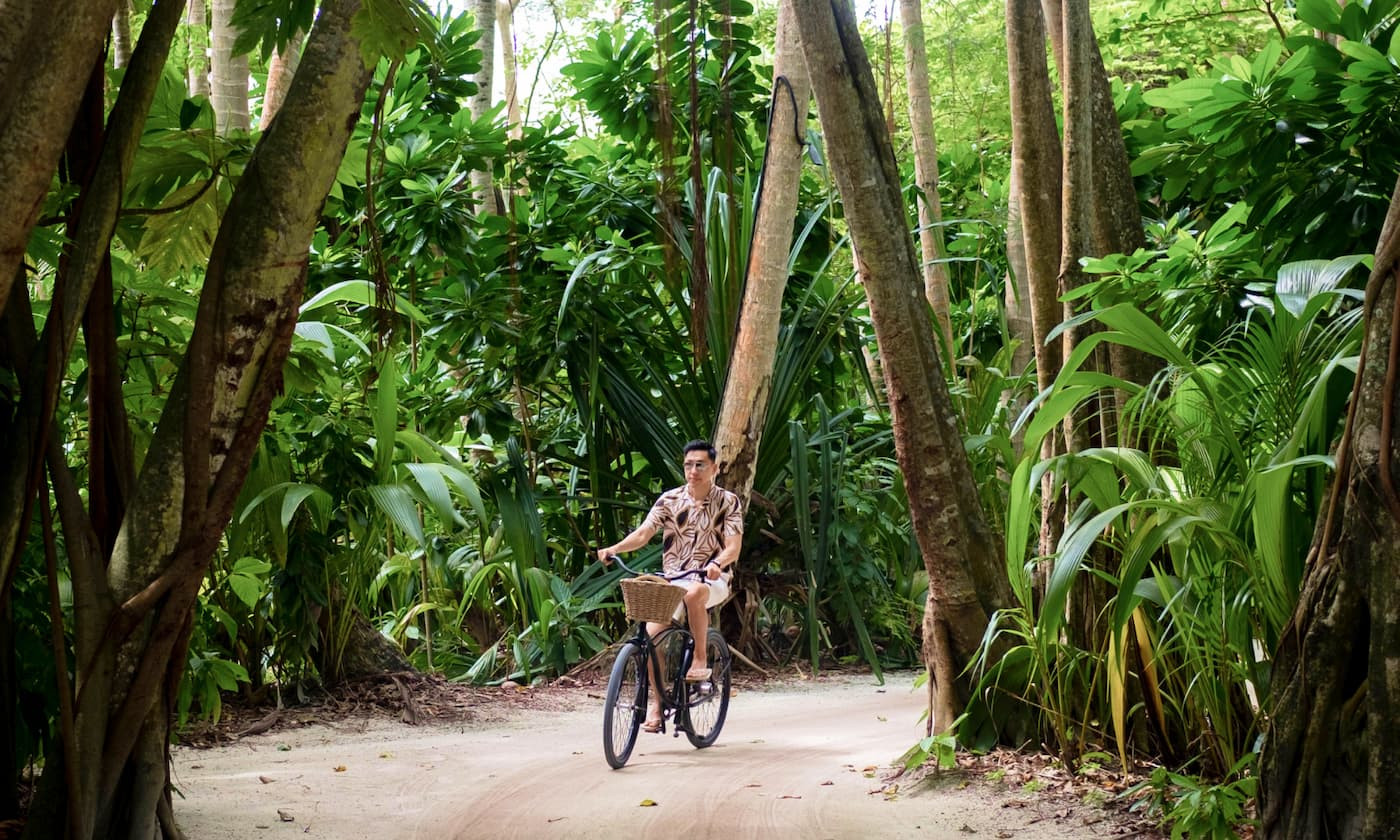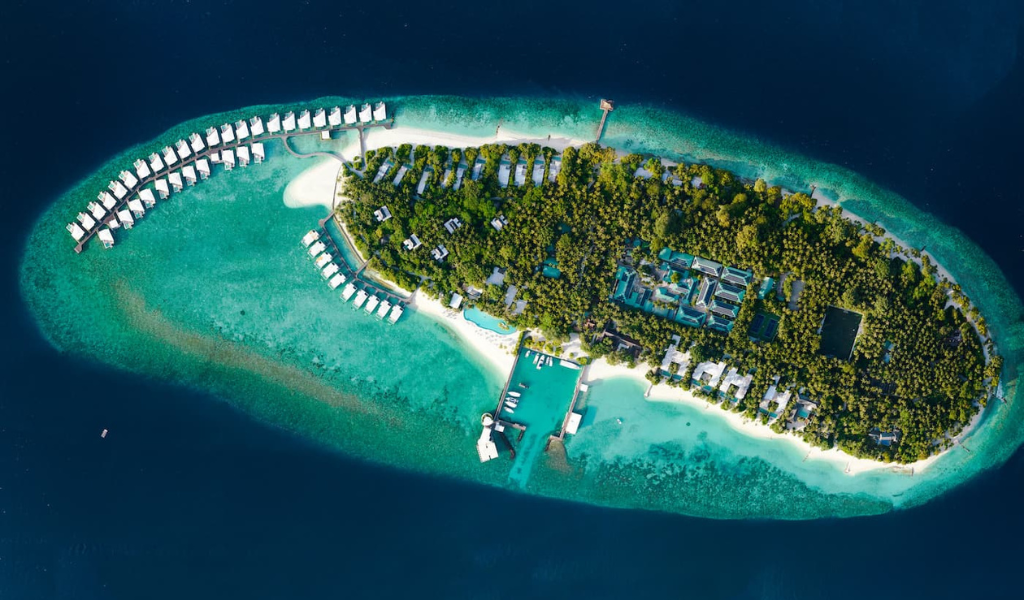

Treading Into The Upper Echelons Of Sustainability With Amilla Maldives
Wednesday 17th of May 2023
Given its excellent positioning in a UNESCO World Biosphere Reserve, Amilla Maldives Resort & Residences enjoys beautiful natural scenery and encounters with unique biodiversity. Nestled in the stunning landscape of Baa Atoll, the resort is also renowned for its sustainability endeavours – an eco-journey it began three years ago.
As a pioneering resort at the forefront of sustainability, Amilla meets the highest standards for eco-conscious and responsible operations in the hotel industry, evident from its EarthCheck Silver certified status for the second consecutive year. The resort is currently undertaking 35 sustainability initiatives on the property, ranging from solar energy and coral propagation to Homegrown@Amilla and Homemade@Amilla programs. Moreover, Amilla also extends its care to the marine environment by purchasing items for villas made from recycled ocean-bound plastic.
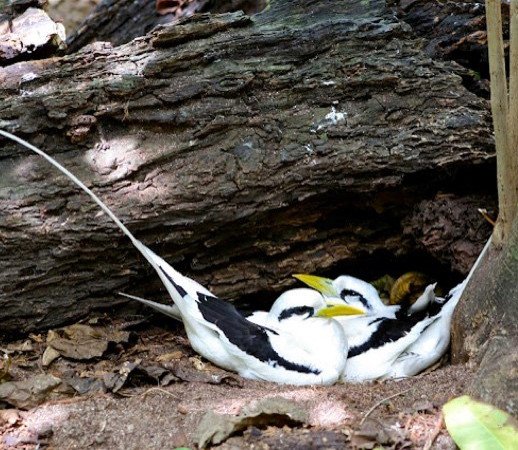
Prior to resort development, Amilla was utilized as an agricultural island for many years and to preserve its lush greenery, 70% of the natural jungle was left undisturbed during development. As a result of this, the abundance of undeveloped spaces drew in rare tropical birds such as the white-tailed tropic birds, which are endangered species in the Maldives. Amilla is now studying these birds in the habitat to further ensure their protection on the property.
Amilla’s signature Homemade@Amilla is another innovative program that helps to achieve the sustainability goals set on the property. Through this program, Amilla is able to significantly reduce its food packaging waste by making as many products as possible in-house. This includes spa products, food items such as yoghurt, jams and pickles, and a range of wellness-centric probiotic sodas like 8 flavours of Kombucha and plant-based milks. Amilla also features The Pentagon and Cluckingham Palace where delicious oyster mushrooms and fresh eggs are harvested every day for use.
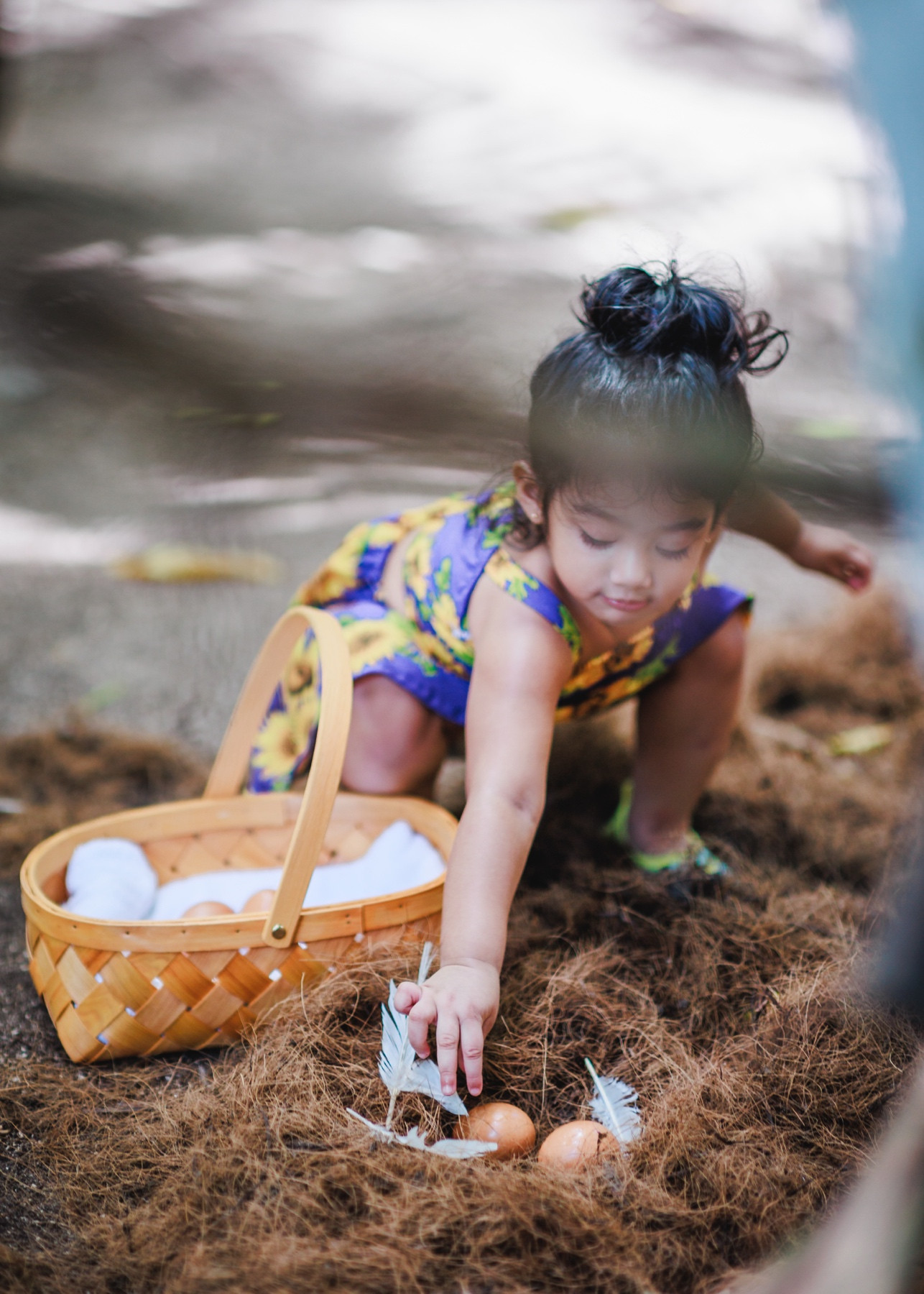
Following a similar route, Homegrown@Amilla focuses on reducing the resort's environmental and carbon footprint by growing fresh produce in on-site gardens. At the heart of the island, guests can find ‘Mystique Garden’ to wander through and a banana plantation as well. Over at ‘Sweet Spot’ a sweet potato garden can be seen while elsewhere guests can come across a mushroom hut and Amilla’s own hydroponic garden where the kitchen’s salad leaf needs are met.
At Amilla, ‘UNdo the Harm’ is the ethos for waste management. At the UN, the resort’s waste is segregated and processed accordingly to mitigate the environmental effects. Glass is crushed and reused as cement for construction while plastic is recycled through Amilla’s partnership with Parley for the Oceans and food waste is processed into nutritious compost for organic gardens. In addition to this, Amilla also contains a coconut-processing facility called The Nut, which is used to create various coconut-based products including coconut oil, vinegar, milk and cream as well as coco pleat for the gardens and crafts.
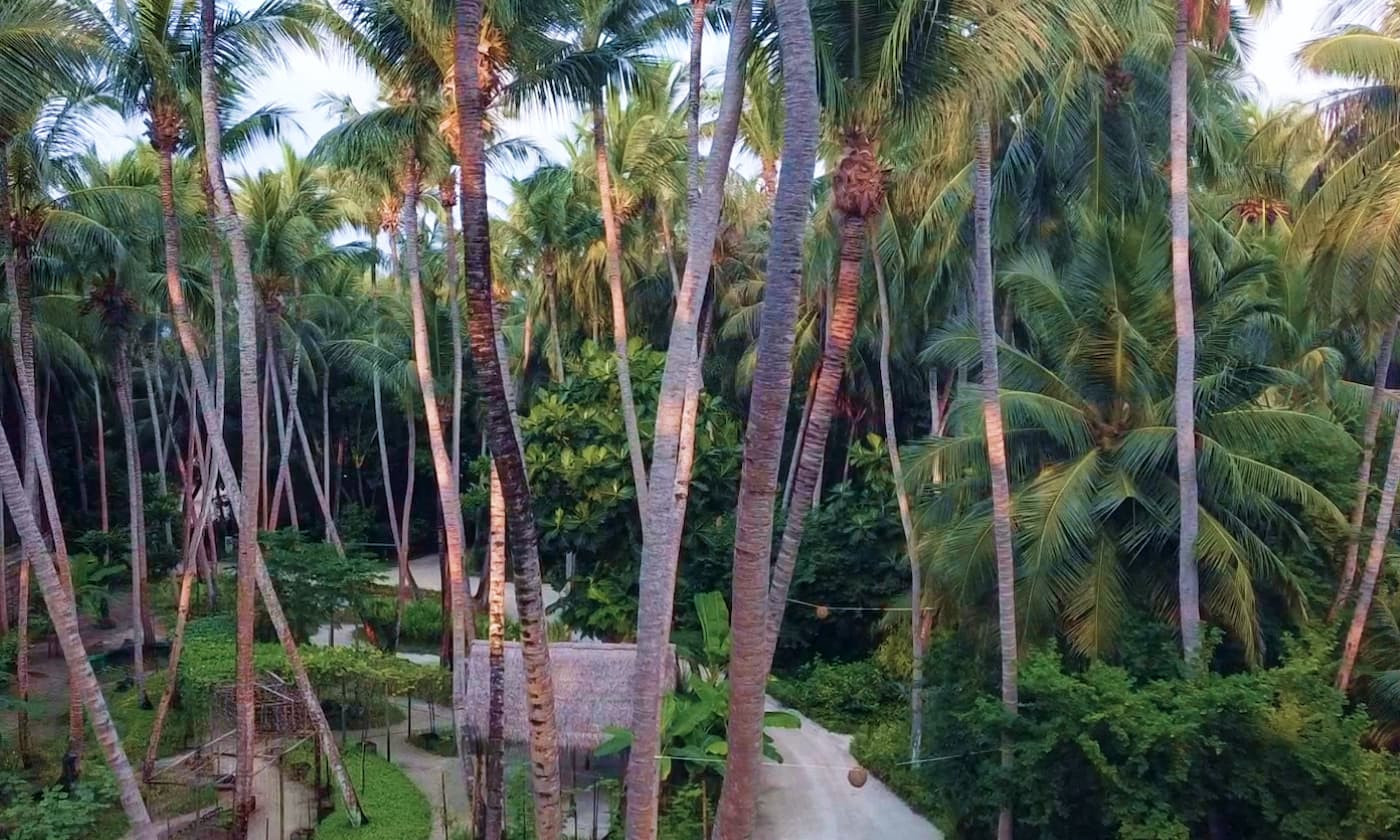
With a resident Marine Biologist available on the property, guests can firsthand contribute to making a difference by learning about the oceans, pursuing inspiring adventures and participating in ongoing research to protect the delicate ecosystems. Gusts can also lend a hand to the Amilla’s coral propagation program where coral fragments that broke off from parent colonies are replanted in an ocean nursery with regular monitoring and maintenance provided to the location.
Apart from this, Amilla also hosts intriguing partnerships with conservation NGOs and organizations such as the Manta Trust and the Olive Ridley Project. Guests at the resort will have the opportunity to contribute to the protection of mantas by joining the Manta Trust’s Maldivian Manta Ray Project and signing its Responsible Operator agreement. Guests can even visit the popular Hanifaru Bay and multiple other cleaning stations during the Manta Season through Amilla’s Dive Centre.
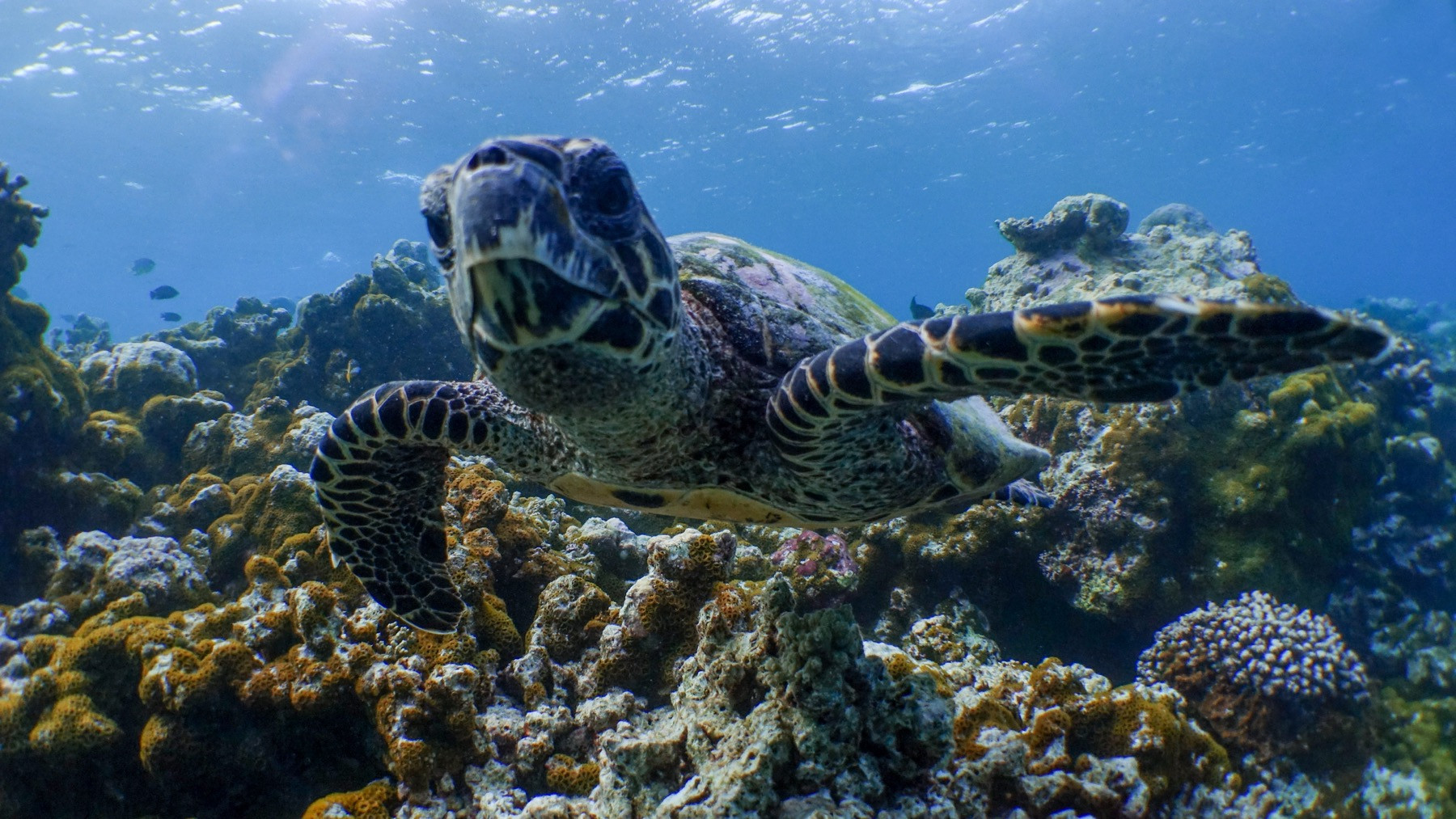
The Olive Ridley Project leads the monitoring and conservation of local turtles. The latest research conducted on the island has revealed that 9 individual turtles come to feed at Amilla regularly while 12 juvenile Hawksbill Turtles live on the island's house reef. Nests belonging to green turtles and the critically endangered Hawksbill Turtles have also been found on the island, and Amilla is carefully leading its protection.
Speaking about its sustainability efforts, Amilla’s Marine Biologist Zoe Cox remarked, “Amilla’s approach to sustainability is truly unique. We don't just focus on protecting the environment, but how the environment can be accessible to everyone, through our IncluCare program. We also try our best to contribute to these amazing ecosystems through the understudied White Tailed Tropic Birds, partnering with the Biosphere Reserve to further understand their nesting habits. We really understand how special our island is, and we want to protect it and share it with as many as possible”.
